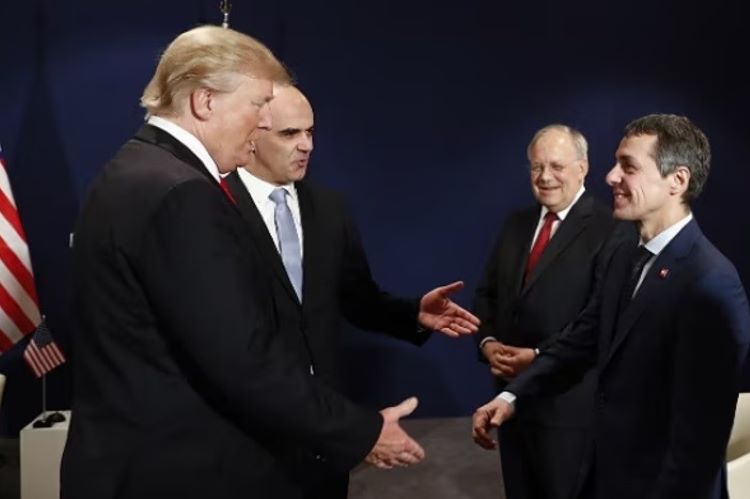As Donald Trump edges closer to a second term in the White House, the global geopolitical order faces heightened complexity and uncertainty. The United States’ rightward shift mirrors broader global trends fuelled by anxieties over rising living costs, immigration pressures, and lingering post-pandemic economic instability. These concerns have propelled voters toward populist leaders promising swift, decisive action. For Trump, whose political ethos centres on economic nationalism and self-reliance, this renewed mandate may reshape both domestic governance and international relations in unpredictable — and potentially seismic — ways.
Trump’s leadership style, defined by its unpredictability and sharp policy shifts, raises significant concerns for both allies and adversaries. His second term may come with fewer institutional constraints, allowing greater decisiveness but also amplifying volatility. From redefining NATO dynamics to recalibrating trade relations with China, Trump’s past actions hint at potential disruptions on the global stage. These uncertainties leave nations bracing for abrupt policy changes that could challenge established norms and alliances.
READ I The dollar paradox: Strength, debt, and global dependence
Eurozone on shaky ground
The eurozone stands particularly vulnerable in this scenario. Struggling with stagnant growth and rising energy costs, its export-dependent industries — especially automotive and machinery — face heightened risks from potential US tariffs. Trump’s promise of sweeping trade barriers targeting Europe could further destabilise the region, triggering reduced production, job losses, and industrial slowdowns. For manufacturing-driven economies like Germany, such disruptions could be catastrophic.
Europe’s reliance on global trade exposes it to both direct tariffs and secondary shocks, such as increased input costs and fractured supply chains. A trade war targeting key sectors like technology, chemicals, and automotive could ripple far beyond the eurozone, deepening global economic instability.
Redefining the global order
Trump’s transactional diplomacy threatens to unravel existing multilateral frameworks, accelerating deglobalisation. A potential US disengagement from NATO, alongside a hardline stance on conflicts from Eastern Europe to the South China Sea, could drastically reshape international relations. Emerging markets, particularly those dependent on cyclical trade, may face acute disruptions. Even relatively insulated economies, such as China and India, may need to recalibrate their strategies.
The erosion of institutionalised global order could leave smaller nations grappling with increased uncertainty, widening the divide between global powers and vulnerable economies. This trend underscores the challenges of maintaining stability in an era of shifting alliances and fractured cooperation.
The dollar’s precarious position
Trump’s economic policies could significantly impact the US dollar’s status as the world’s reserve currency. While a weaker dollar might offer short-term trade advantages, protectionist tariffs and threats against emerging powers like the BRICS nations could undermine global trust in the dollar’s stability.
BRICS nations’ efforts to explore alternative currencies and payment systems highlight a growing desire to reduce dollar dependence. Should these trends gain momentum, the dollar’s role as a safe-haven asset could diminish, unsettling global financial markets. While Trump’s previous term saw tariffs unexpectedly bolster the dollar, a repeat of this outcome is far from certain amid mounting trade tensions and eroding international confidence.
India’s tight-rope walk
India, the US’s largest trade partner, finds itself navigating a delicate balance in response to Trump’s protectionist agenda. His threats of steep tariffs on BRICS nations underscore deepening economic tensions. India, committed to open trade, is also exploring mechanisms to reduce reliance on the dollar, such as strengthening rupee-based trade frameworks. However, achieving such shifts requires robust institutional support and global confidence, both of which are long-term challenges.
As India seeks to safeguard its economic interests, it must carefully align its strategies with its aspirations for global economic leadership while minimising potential fallout from Trump’s policies.
Domestic policy contradictions
Domestically, Trump’s proposed tariffs and levies on Chinese imports aim to promote US economic independence. However, these measures risk fuelling inflation, straining consumers, and exacerbating fiscal vulnerabilities. His simultaneous pursuit of a weaker dollar for exporters and a stronger dollar to attract capital underscores the contradictions within his policies.
Tax cuts favouring corporations and high-income individuals, coupled with reduced spending on social programs, may temporarily boost markets but are projected to inflate the federal deficit by $8 trillion over the next decade. Immigration restrictions and rising wage demands could further intensify inflation, compelling the Federal Reserve to maintain tighter monetary policies, straining the broader economy.
A world on the edge
Despite Trump’s ambitions, the US political system’s checks and balances may temper his influence. State-level governance and mid-term elections offer some counterweights to federal overreach. However, these safeguards may prove insufficient in a world where volatility and uncertainty dominate policymaking.
As Trump prepares to re-enter the global arena, his “America First” rhetoric risks alienating allies and emboldening rivals. In this precarious geopolitical climate, nations must tread carefully, recognising that the shifting sands of global power leave no anchor entirely secure. The challenge lies in preserving stability and fostering cooperation amidst an era marked by fracturing alliances and the pursuit of national self-interest. Whether the world can navigate these challenges without descending into a fractured and volatile order remains an open question.

